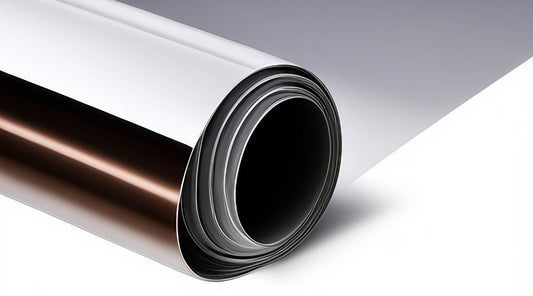How do you keep your window films clean without damaging them? If you spent good money on solar, privacy, or security film, then learning to clean it right is a smart move. The steps below are easy to follow and can help you avoid scratches, peeling, and other problems. One of our customers in Toronto used these exact tips and kept their window film looking new for over five years—no bubbling, no fading, and no drama. If you're ready to make your films last longer, you’re in the right place.
Step 1: Understand What Type of Window Film You Have
Before cleaning, figure out what kind of film you have. Different films need different care. Some are for blocking the sun, others for safety or privacy. Some are clear, some are tinted, and some are decorative.
Why does this matter? A solar film may handle more cleaning than a decorative film. Some films have a coating that can wear off with the wrong cleaner. Also, indoor films are usually softer than outdoor ones.
If you used a pro installer like Tintly Window Films®, check the care sheet they gave you. If not, call and ask. One customer thought they had a heat film but used ammonia on a privacy film. It bubbled up in days. Knowing your film type can help you avoid mistakes like that.
Step 2: Wait Before You Clean Newly Installed Films
Don't rush to clean your film right after it's installed. It needs time to stick to the glass. That usually takes around 30 days.
During that time, you might see bubbles or a cloudy look. That’s normal. The glue is still drying. If you clean too soon, you might loosen the edges or pull the film off. One customer used a squeegee after just three days and had to replace the whole thing.
Set a reminder on your phone for a month after install. Then, you can clean with care. If you’re not sure it’s ready, wait a few more days. Better safe than sorry.
Step 3: Use the Right Tools (And Ditch the Wrong Ones)
Cleaning film the right way starts with the right tools. The wrong ones can scratch or peel the surface. Here’s what to use:
- Microfibre cloths: Soft and lint-free
- Non-scratch sponges: For tough spots
- Rubber squeegee: For streak-free drying
- Spray bottle: For even cleaner spray
Avoid these:
- Paper towels: They scratch and leave fuzz
- Scouring pads: They damage the surface
- Ammonia cleaners: They break down the film
- Scrapers or blades: They lift the edges
One business client used a scraper on graffiti protection film. It peeled right off. Stick to soft cloths and you’ll be fine.
Step 4: Make a Gentle Cleaning Solution or Use a Trusted Product
You don’t need strong cleaners for window film. A simple mix works best: 1 teaspoon of baby shampoo or dish soap in 1 litre of distilled water.
Baby shampoo is gentle and safe for film. It smells nice and won’t leave streaks. Or, use a store-bought cleaner that says it's safe for film. Just read the label. No ammonia. No bleach.
Always do a spot test. Spray a little in the corner and see what happens. If it looks fine after a few minutes, clean the rest.
At Tintly Window Films®, we suggest baby shampoo for most jobs. One customer said their windows never looked cleaner—and their toddler liked the smell too.
Step 5: Clean Using a Soft, Circular or Top-Down Motion
How you clean matters. Use slow, gentle strokes. Start at the top and work your way down.
Use circles for spots and straight swipes for the rest. Don’t press too hard. You don’t need to scrub. Dry with a clean microfibre cloth or a squeegee.
Don’t soak the edges. Water can slip under the film and cause it to peel. One customer cleaned too often and sprayed too much. A year later, the corners lifted and mould started growing. Not fun.
Stick with light cleaning and avoid soaking the window.
Step 6: Avoid Common Hazards That Can Damage Your Film
Many things can hurt your window film over time. Sharp rings or nails can scratch it. Pets might claw at the lower corners.
Don’t stick suction cups, tape, or decals on the film. They can tear or pull it loose. We’ve seen parents try to hang toys or sunshades—bad idea.
Skip steam cleaners and high-pressure washers. They can lift the edges or warp the film. Also, don’t place space heaters near windows. The heat can mess with the adhesive.
Watch out for small stuff. It adds up over time and shortens the life of your film.
Step 7: Maintain a Regular Cleaning Schedule Without Overdoing It
Clean your window film often—but not too often. Every 3–6 months is a good rule.
If your windows get a lot of dirt or grease (like in kitchens or near roads), you might need to clean more. Guest rooms or low-use windows can go longer.
Between cleanings, wipe away smudges with a dry cloth. Fast and easy.
Check your windows while you clean. Look for signs of damage—bubbles, peeling, or fading. Catching problems early means fewer big repairs later.
Step 8: Know When to Call in the Pros
Sometimes, it’s best to call the experts. If you see peeling, bubbles, or weird colours, don’t try to fix it yourself.
Pros like Tintly Window Films® can repair or replace your film without a trace. We hand-slice each piece for smooth, clean lines. No jagged edges. No seams.
Trying to fix it yourself might void the warranty. One customer used glue to fix a peeling corner. The glue turned yellow and baked in the sun. It looked awful.
Calling pros saves you time, stress, and more damage.
Keeping your window films clean is simple. Know your film, wait before cleaning, use the right tools, and avoid common mistakes. Follow a steady routine and check for damage.
Liked these tips? Check out more smart, money-saving window care tips on our blog—your glass will thank you.
Frequently Asked Questions
How often should I clean my window film?
You should clean your window film every 3 to 6 months, depending on how much dirt or grease builds up.
Can I use vinegar or ammonia on window film?
No, avoid vinegar or ammonia—they can damage the film's surface and shorten its lifespan.
What should I do if my window film starts peeling?
If your film starts peeling, call a professional to fix or replace it—don’t try to glue it back yourself.
Can I use a steam cleaner on window film?
No, steam cleaners can lift the film's edges and weaken the adhesive.
Is it safe to use a squeegee on window film?
Yes, as long as the squeegee has a soft rubber edge and you use light pressure.




